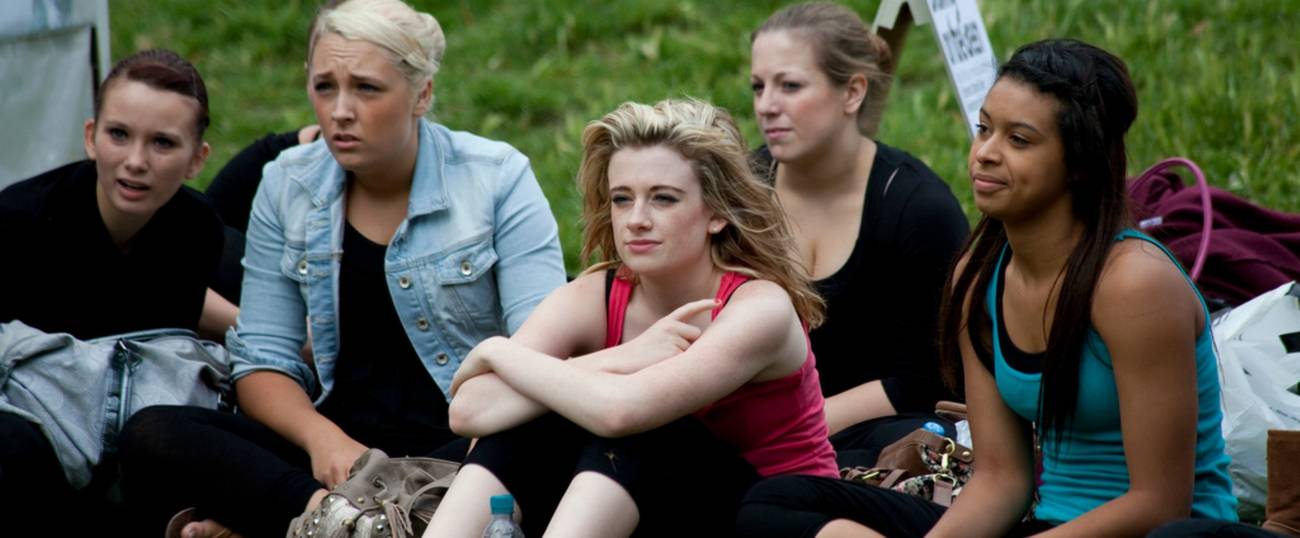Won’t Somebody Please Think of the Children
Don’t blame millennial ‘snowflakes’ for the problems on campus, students are the victims not the cause of college craziness




Discussions of campus censorship and ideological bias often center around claims of discrimination against conservative faculty and outside speakers. Occasionally, more systematic treatments, like those of Heterodox Academy, note the potential damage to scholarship from a lack of viewpoint diversity. It’s far rarer to see a critique of campus politics based on the damage it can do to the educations of college students. In fact, many commentators seem eager to blame students for various problems in the American university system, depicting them, as “snowflakes,” “crybullies,” and so on. But this is a deflection. Students are the victims, not the perpetrators, of campus censoriousness, politicization, and political bias, and academics should think hard about the skills their charges are failing to acquire as a result.
Imagine there is a very important unsolved question in mathematics that comes to dominate the field. Some try to answer this question with method A, others with method B. Though the question remains unsolved, various kinds of progress are made and small victories are won for each side. Over time, for one reason or another, the number of professors who teach method B gets smaller and smaller, and method A becomes the consensus in academia. There is still a great deal of research on B, but it is confined to think tanks and industrial research. I think few academics would hesitate in this situation to say that there is a bias within universities in favor of method A, and to note that eschewing method B might appreciably weaken the mathematical education of undergraduates and graduate students.
What are some of the “conservative” intellectual skills—the “method B” in my analogy—that are worth teaching? One of them is the positive genealogy of institutions, a kind of secular theodicy, which we can counterpose to the negative, revolutionary genealogies of leftists (which also have their place). This has come to be known as Chesterton’s Fence, after G. K. Chesterton, who compared the “clearing away” of institutions to the clearing away of fences. Most reformers, Chesterton thought, wanted to clear away fence-like institutions because they could not see why they had been erected. But this was precisely why they ought to be prevented from doing so. Rather, we should try to fully understand the purposes for which a fence has been built, and only once we do so will we be in a position to judge whether it is effectively serving those goals. There are problems inherent to any genealogical approach, but if students learn how to do one they should learn how to do the other.
Another conservative skill is the anticipation of unintended consequences, especially consequences that run diametrically opposed to our intentions. Albert Hirschman in The Rhetoric of Reaction called this the “perversity thesis”: the notion that our attempts to ameliorate some problem in the world actually end up making it worse. A good example of the perversity analysis in action is the conservative view that affirmative action harms qualified minorities by making their accomplishments seem contingent on special treatment. It is, of course, a matter for empirical investigation whether unintended consequences will actually obtain in any given case. The importance of training in these conservative intellectual skills is the ability to see possibilities as possibilities rather than neglecting them or ruling them out on some ad hoc basis.
More than their own desire for safe spaces or trigger warnings, what’s endangering college students isn’t manias they bring to campus but the prevailing curriculum and methodology in the contemporary academy. By and large, the most politicized fields, with the highest proportions of left-wing professors, adhere to a very strong form of social constructivism. They view all the categories of our experience, cognition, action, and valuation as products of history, culture, socialization, and so on; and in their crudest forms they purport to be able to analyze the modes of that production and to tell people who they are based on them. At one of the most vulnerable stages in the process of exploring and creating their identities–their unique, personal identities, not their intersectional matrices–students come up against the view that the opinions of others, and especially of hateful and oppressive others, are inescapable constituents of those identities. To the extent that their educations consist only in being trained to see such awful determinism everywhere, to track it from high art through pop culture to political theater, they will be genuinely harmed.
Of course, just how dominant this perspective is on campus is a matter of some debate. I don’t mean to take an extreme position here, but rather to point up some underappreciated consequences that would obtain were the extreme position true, and that, I think, obtain in part even if it is not. College can be a time where students learn to confront their fears, to develop their talents and build robust skillsets with which they can analyze and challenge whatever ideas they encounter–theirs or other people’s, popular or unpopular, right or wrong, oppressive or liberatory. The more skills they learn in this process, the better. Anything less than a fully open and thoroughly well-rounded intellectual experience does them, and the liberal-arts ideal, an injustice.
Oliver Traldi is a John and Daria Barry Postdoctoral Research Fellow in the James Madison Program in American Ideals and Institutions in the Department of Politics at Princeton University.